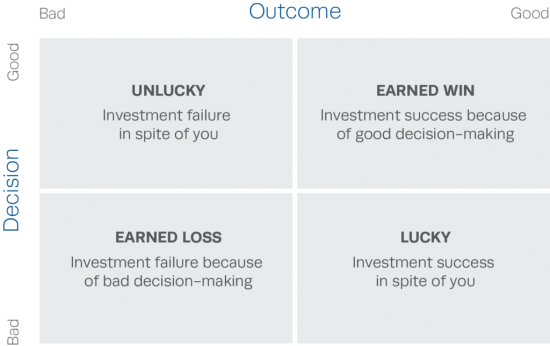Market Recap and Today's Lessons on Brexit
by LPL Research
Equities post a second day of solid gains, oil spikes. Major U.S. indexes followed European markets higher on Wednesday in a repeat of Tuesday's action. Bargain hunting again pushed financials to the top of the sector rankings, while a 3.3% jump in oil prices helped energy stocks outperform (per the S&P GICS sector indexes). Utilities lagged notably, as they were the only sector to advance less than 1%; small caps outperformed their large counterparts; and the VIX, a measure of implied volatility, fell further, down nearly 9% on the day. The pound gained nearly a percent against the U.S. dollar, while the FTSE 100 rallied back to pre-Brexit levels. Despite the risk-on attitude, bonds fell only slightly with the yield on the 10-year note rising to 1.48%, and gold closed up 0.3%.
What We Learned Today on Brexit
Global financial markets continued to rebound from the initial shock of last week's Brexit vote and the initial market panic. Markets are starting to realize that trade between the U.K. and the EU is not going to cease right away as a result of this vote. What will be negotiated is not whether there will be trade, but on what terms this trade will take place. Some have referred to the concept of a "Brexit Light," whereby the U.K. would retain easy access to European markets, but without having to accept the regulatory system that many in the U.K. believe is too restrictive.
There is also the possibility that the U.K. may not end up leaving the EU at all. After all, last week's vote was a referendum that took place outside of the constitutional and is not binding on the government. U.S. Secretary of State John Kerry suggested as much earlier this week after his meeting with Prime Minister David Cameron on Monday.
What the market may now be anticipating is some sort of face-saving deal between the parties, where U.K. politicians can be seen as following the will of the people, while still allowing trade between the parties on substantially the same terms as it is conducted currently. Though possible, such a relationship will be difficult to achieve. One sticking point may be movement of people across borders. The EU is founded on the "four freedoms":
- Free movement of goods
- Free movement of services
- Free movement of persons (and citizenship), including free movement of workers
- The free movement of capital
At the meeting of European leaders that ended Wednesday morning, June 29, 2016, a number of officials, including German Prime Minister Angela Merkel, reiterated the importance of all four pillars. Immigration was one of the major issues in the Brexit referendum campaign, which does make it hard to find an acceptable compromise. However, given the importance of the trading relationship between the parties, there is great economic incentive to find some way to move forward with minimal damage to trade.
LPL Mailbox Question of the Day
Q: Which beaten up areas of the market might have value, in light of Brexit?
A: We continue to favor large growth stocks here in the U.S., though it would be hard to argue that sector is truly "beaten up." Nevertheless, there are some pockets of attractive valuations in technology and healthcare. One source of potential value is the emerging markets, where valuations have long been more attractive than in much of the developed world. In addition, many emerging Asian countries compete directly with Japan on exports and may benefit from currency volatility there. Continued yen strength has punished the Japanese market, which is primarily export driven.
*****
IMPORTANT DISCLOSURES
The opinions voiced in this material are for general information only and are not intended to provide or be construed as providing specific investment advice or recommendations for any individual security. All performance referenced is historical and is no guarantee of future results. All indices are unmanaged and cannot be invested into directly.
Investing in stock includes numerous specific risks including: the fluctuation of dividend, loss of principal and potential illiquidity of the investment in a falling market.
Investing in foreign and emerging markets securities involves special additional risks. These risks include, but are not limited to, currency risk, geopolitical risk, and risk associated with varying accounting standards. Investing in emerging markets may accentuate these risks.
Currency risk is a form of risk that arises from the change in price of one currency against another. Whenever investors or companies have assets or business operations across national borders, they face currency risk if their positions are not hedged.
Commodity-linked investments may be more volatile and less liquid than the underlying instruments or measures, and their value may be affected by the performance of the overall commodities baskets as well as weather, geopolitical events, and regulatory developments.
Because of its narrow focus, investing in a single sector, such as energy or manufacturing, will be subject to greater volatility than investing more broadly across many sectors and companies.
Growth stock investing involves risk and can be more volatile than other classes of investments. Growth is defined based on fast growth (high growth rates for earnings, sales, book value, and cash flow) and high valuations (high price ratios and low dividend yields).
The S&P 500 Index is a capitalization-weighted index of 500 stocks designed to measure performance of the broad domestic economy through changes in the aggregate market value of 500 stocks representing all major industries.
The FTSE 100 is an index of blue-chip stocks on the London Stock Exchange.
The VIX is a measure of the volatility implied in the prices of options contracts for the S&P 500. It is a market-based estimate of future volatility. When sentiment reaches one extreme or the other, the market typically reverses course. While this is not necessarily predictive it does measure the current degree of fear present in the stock market.
This research material has been prepared by LPL Financial LLC.
To the extent you are receiving investment advice from a separately registered independent investment advisor, please note that LPL Financial LLC is not an affiliate of and makes no representation with respect to such entity.
Not FDIC/NCUA Insured | Not Bank/Credit Union Guaranteed | May Lose Value | Not Guaranteed by any Government Agency | Not a Bank/Credit Union Deposit
Securities and Advisory services offered through LPL Financial LLC, a Registered Investment Advisor
Member FINRA/SIPC
Copyright © LPL Research















